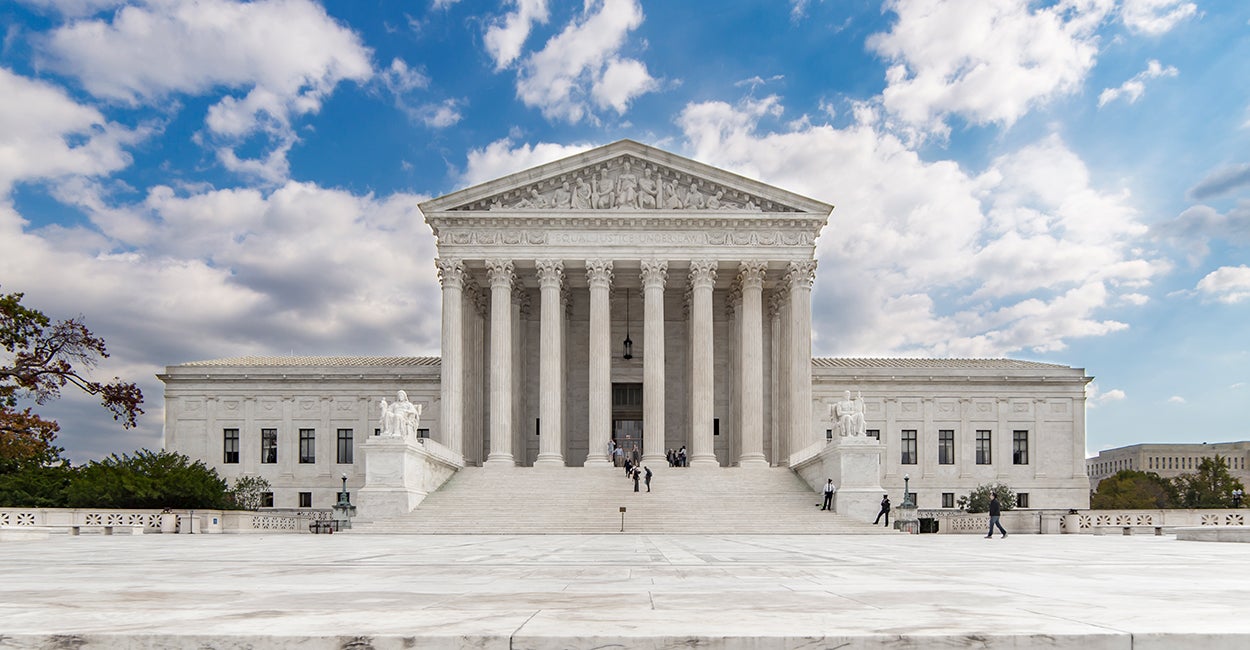 |
President Donald Trump nominated Judge Amy Coney Barrett on Sept. 26 to replace the late Justice Ruth Bader Ginsburg. “If Republicans confirm Judge Barrett,” tweeted Sen. Edward Markey, D-Mass., in response, “end the filibuster and expand the Supreme Court.” In other words, if at first you don’t succeed, rig the rules.
Numerous other Democratic politicians have either explicitly expressed their support for this or said that “everything is on the table,” including Sens. Kamala Harris, Chuck Schumer, Elizabeth Warren, Richard Blumenthal, Sheldon Whitehouse, and Mazie Hirono, as well as Reps. Nancy Pelosi, Alexandria Ocasio-Cortez, Joe Kennedy, and many others.
When asked during the Sept. 29 debate whether he supported packing the Supreme Court, presidential candidate Joe Biden said, “I’m not going to answer the question.” His running mate, Harris, has also avoided the question recently.
It’s important to understand both what “court packing” would require and how its impact would be felt.
Keeping the judiciary separate from manipulation by the political branches was one of the reasons for American independence from Great Britain. Chief Justice William Rehnquist once described judicial independence as the “crown jewel of our system of government.”
That jewel is easy to admire until its results don’t fit your politics. Court-packing refers to changing the structure of the judiciary to add judges deemed likely to render favorable decisions.
While America’s Founders sought to separate the judiciary from politics, court-packing deliberately brings them together. --->READ MORE HERECourt-Packing Would Be the Very Tyranny Democrats Have Warned About:
It is a testament to the extraordinary myopia of the American press corps that, day in and day out, it manages to miss not only the biggest story of the moment, but the biggest story that has presented itself within American politics for decades: the threat, currently being issued by many within the Democratic Party, to blow up the United States Supreme Court.
It is almost impossible to convey in words the monstrous enormity of what is being proposed, and yet it cannot be the case that our journalists lack the vocabulary with which to discuss it. For four years now, almost everything that President Trump has said and done has been met with language of the utmost urgency. We have heard about “shredded norms” and “threats to democracy” and “creeping fascism.” We have been warned that we are flirting with “totalitarianism” and “dictatorship” and even “concentration camps.” We have heard comparisons to Reichstag fires and the “secret police.” We have been told “This is not normal.” We have been informed that political parties that “ignore the law” are to be shunned. We have been regaled with lurid accounts of how nations decline. Often, this has been deserved, and, even when it has not, it has been justified on the grounds that free people remain free by acting prophylactically against encroachments. Now that it is the Democratic Party doing the threatening, however, the prose has become tentative, prosaic, and dull. Has there been a national recall on thesauruses?
Equally unlikely is that the lack of interest is the product of a lack of concern for the courts, for, when President Trump has criticized judicial decisions — or, worse, individual judges — he has been rightly lambasted. In a typical piece in The Atlantic, Garrett Epps described Trump’s verbal attacks as part of a “sordid war,” lamented that “the independent judiciary hasn’t faced such a direct attack since the Jeffersonians,” warned readers that we’re headed toward “mortally dangerous constitutional territory,” encouraged Americans to fall into “uproar,” and asked whether Justices Kavanaugh and Gorsuch would see fit to stand up against Trump’s rhetoric. If not, Epps inquired, “who will speak up for them when their time comes?” --->READ MORE HERE
If you like what you see, please "Like" us on Facebook either here or here. Please follow us on Twitter here.


No comments:
Post a Comment